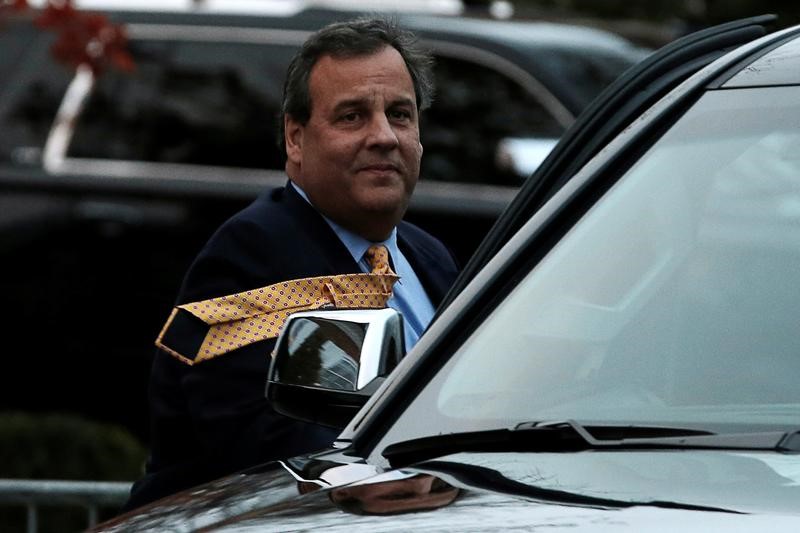By Elinor Comlay
TRENTON, N.J. (Reuters) - New Jersey Governor Chris Christie laid out plans to spend more money on public pensions and roads and reiterated calls to transform the state's school funding formula in his final budget address as leader of the state on Tuesday.
The Republican, once a White House hopeful, said his $36.2 billion budget proposal for fiscal 2018 included a $2.5 billion contribution to the state's retirement system for public employees, up $647 million from last year's contribution.
He said he wants to spend an extra $400 million this fiscal year to fix roads and deficient bridges. In October he signed into law a gasoline tax hike of 23 cents a gallon, New Jersey's first increase since 1988, in exchange for reducing other taxes. This latest budget proposal does not call for any new tax increases.
Christie said he wanted to work with lawmakers to overhaul the state's education funding formula within 100 days, before primary elections in June, though he did not make any changes to the formula in his proposed budget.
His first such proposal in June 2016 to send a flat rate of $6,599 per student to all public school districts has fallen flat in the Democrat-led legislature.
Christie is in his eighth and final year as governor. His presidential aspirations and approval rating at home crumbled in the wake of the Bridgegate scandal involving his former top aides.
Credit rating agencies have downgraded New Jersey 10 times since Christie took office in 2010, in part because of state pension liabilities.
Even so, Christie touted property tax aid, job growth and lower discretionary spending by his administration in his address to lawmakers, as well as an unemployment rate that has fallen to 4.7 percent from 9.8 percent in 2010.
His fiscal 2018 budget anticipates a 2.6 percent increase in spending and a 3.6 percent increase in revenues. Christie said he has lowered the amount of one-time budget revenues to 2 percent from 13.2 percent in 2009.
He proposed using state lottery revenues to shore up the pension system, saying this could boost the system's funded ratio to 64 percent from 49 percent and cut unfunded liability by about $13 billion. The shortfall is currently about $136 billion, according to S&P Global.
"While the need for real and sustainable long-term reform cannot be understated, addressing the continued compounding of our pension crisis requires a substantial increase in State contributions," Christie said.
Which stock should you buy in your very next trade?
AI computing powers are changing the stock market. Investing.com's ProPicks AI includes 6 winning stock portfolios chosen by our advanced AI. In 2024 alone, ProPicks AI identified 2 stocks that surged over 150%, 4 additional stocks that leaped over 30%, and 3 more that climbed over 25%. Which stock will be the next to soar?
Unlock ProPicks AI

